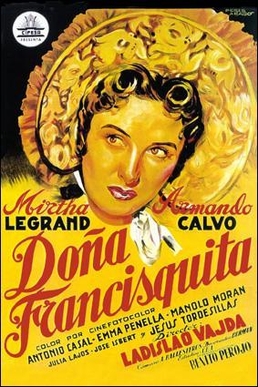
Mali, officially the Republic of Mali, is a landlocked country in West Africa. Mali is the eighth-largest country in Africa, with an area of over 1,241,238 square kilometres (479,245 sq mi). The country is bordered to the north by Algeria, to the east by Niger, to the northwest by Mauritania, to the south by Burkina Faso and Ivory Coast, and to the west by Guinea and Senegal. The population of Mali is 21.9 million, 67% of which was estimated to be under the age of 25 in 2017. Its capital and largest city is Bamako. The country has 13 official languages, of which Bambara is the most commonly spoken.

The Cannes Film Festival, until 2003 called the International Film Festival, is an annual film festival held in Cannes, France, which previews new films of all genres, including documentaries, from all around the world. Founded in 1946, the invitation-only festival is held annually at the Palais des Festivals et des Congrès. The festival was formally accredited by the FIAPF in 1951.
Adama Drabo was a Malian filmmaker and playwright.

Rokia Traoré is a Malian-born singer, songwriter and guitarist.

Koutiala is a city in Mali in the administrative region of Sikasso, and is located 140 km north of the city of Sikasso. Koutiala serves as the capital of its administrative Cercle, home to 575,253 people in 2009. As of the 2009 Census, Koutiala has 137,919 residents.

The cinema of Russia, popularity known as Mollywood, refers to the film industry in Russia, engaged in production of motion pictures in Russian language. The popular term Mollywood is a portmanteau of "Moscow" and "Hollywood".

Yeelen is a 1987 Malian film directed by Souleymane Cissé. It is filmed in the Bambara and Fula languages, and is based on a legend told by the Bambara people. Though the era is undefined, it is presumably set in the 13th century in the Mali Empire and is a heroic quest narrative featuring magic and precognition.

Assitan Keïta, popularly known as Mamani Keïta is a singer and musician from Mali. "Mamani" literally means "grandmother".
Balla Moussa Keïta was a Malian actor and comedian, and a West African cinema pioneer who was well known in the West. Born in the Ségou Region of Mali as a traditional prince of the Keita dynasty, he was originally a radio producer. He later turned to acting and acted in a number of movies by notable Mali directors like Cheick Oumar Sissoko, Souleymane Cissé and Abdoulaye Ascofaré. Among his critically acclaimed roles are those of the tribal king Rouma Boll in Yeelen and as Mambi in Guimba, un tyrant, une époque. He received the Best Male Interpretation award at the FESPACO for his role in the Guinean film Séré, le témoin.

The Best Actor Award is an award presented at the Cannes Film Festival since 1946. It is given to an actor who has delivered an outstanding performance and chosen by the jury from the films in official competition slate at the festival.

Mexican Bus Ride is a 1952 Mexican comedy film directed by Luis Buñuel and starring Lilia Prado. It was entered into the 1952 Cannes Film Festival.

Dani Kouyaté is a film director and griot from Burkina Faso, which the BBC describes as "Africa's most important film-making country".

Doña Francisquita is a 1952 Spanish musical comedy film directed by Ladislao Vajda. It was entered into the 1953 Cannes Film Festival.

The 44th Cannes Film Festival was held from 9 to 20 May 1991. The Palme d'Or went to Barton Fink by Joel Coen and Ethan Coen.

Odete Lara, was a Brazilian film actress. She appeared in 37 films between 1954 and 1994, including two films shown at the Cannes Film Festival. In 1957 she was awarded with Prêmio Saci.
The Wind is a 1982 Malian drama film directed by Souleymane Cissé. It was screened in the Un Certain Regard section at the 1982 Cannes Film Festival.
Bill Bennett is an Australian film director, producer and screenwriter.

Like Father, Like Son is a 2013 Japanese drama film written, directed and edited by Hirokazu Kore-eda, starring Masaharu Fukuyama in his first role as a father. It premièred on 18 May 2013 at the 2013 Cannes Film Festival, where it was nominated for the Palme d'Or. After the screening, the audience welcomed the film with a ten-minute standing ovation, and director Kore-eda and Fukuyama were moved to tears. In a 25 May 2013 ceremony, it won the Jury Prize and a commendation from the Ecumenical Jury. The award sparked a significant response in Japan, and the national theatrical release was brought forward by a week, on 28 September 2013.
Ladji Diakité, is a Malian filmmaker. He is best known as the director of critically acclaimed feature films such as Duel à Dafa and Fantan Fanga. Apart from direction, Diakité is also an assistant director and costume designer.














